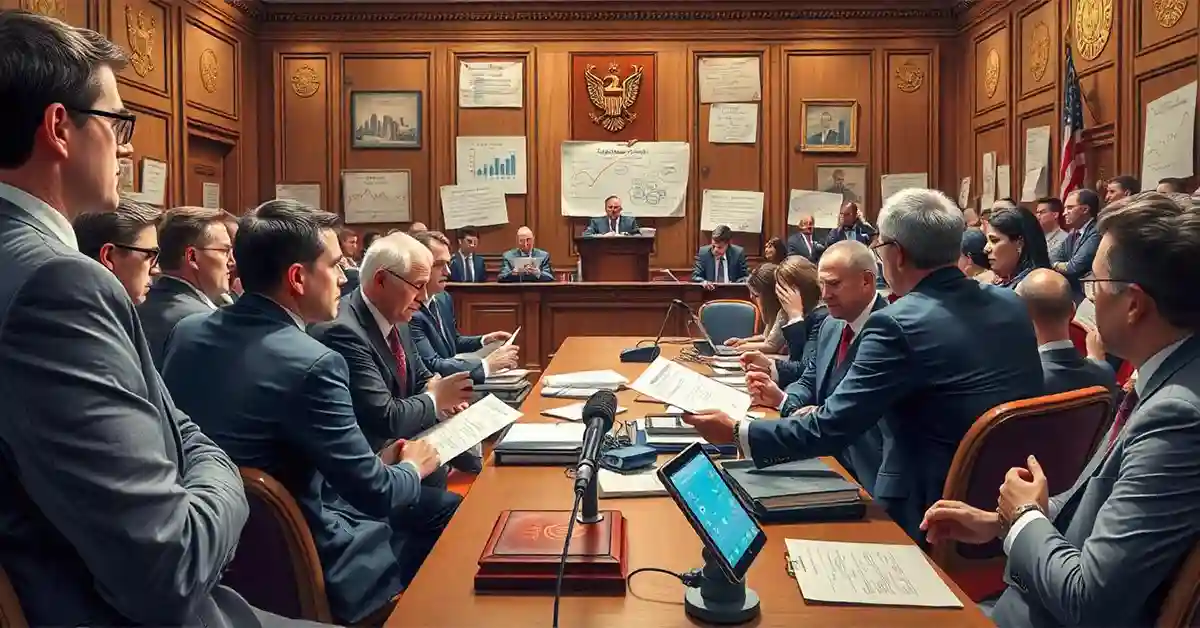In recent years, legal battles have caught the attention of both entrepreneurs and tech enthusiasts alike. The 72 Sold lawsuit stands out due to its implications in the world of business and technology. At first glance, it might seem like just another court case, but the underlying issues are much more intricate and impactful.
What exactly is the core issue behind the 72 Sold lawsuit? How does it affect the broader business landscape, and what can entrepreneurs and tech innovators learn from it? These questions form the backbone of our exploration in this post. By examining the key elements of the case, we aim to provide insights that cater to the curiosity of legal professionals and the strategic interests of entrepreneurs.
The 72 Sold lawsuit presents notable challenges and potential solutions. By understanding this case, stakeholders can better navigate similar situations in their own fields. Keep reading as we break down the complexities of this lawsuit and share valuable takeaways for businesses and individuals alike.
Understanding the 72 Sold Lawsuit
The 72 Sold lawsuit revolves around a dispute involving a promising startup and allegations of unfair business practices. At its heart, the case highlights the tensions that can arise when innovation meets established market norms. Entrepreneurs and tech innovators stand to gain valuable insights by examining the details and outcomes of this lawsuit.
Background and Origins
The origins of the 72 Sold lawsuit trace back to a challenging business environment where new ideas sometimes clash with traditional practices. The startup in question sought to revolutionize its industry, which inevitably led to friction with competitors. Understanding this backdrop is crucial for appreciating the stakes involved.
Key Players in the 72 Sold Lawsuit
Several key players are involved in the 72 Sold lawsuit, including the startup itself, rival companies, and legal representatives. Each party brings unique perspectives and interests to the table, shaping the course of the legal proceedings. By identifying these players, we can better understand the dynamics at play.
Legal Grounds for the Lawsuit
The legal basis for the 72 Sold lawsuit centers around specific allegations related to business conduct and competition. Issues such as intellectual property rights, market manipulation, and contractual obligations are examined in depth. Exploring these legal grounds sheds light on the complexity and significance of the case.
Implications for Entrepreneurs
Entrepreneurs have much to learn from the 72 Sold lawsuit, particularly in terms of risk management and strategic planning. The case serves as a reminder of the importance of due diligence and maintaining fair business practices. In this section, we explore the lessons that entrepreneurs can draw from this legal battle.
Insights for Tech Innovators
Tech innovators face unique challenges when navigating legal landscapes, and the 72 Sold lawsuit offers valuable insights. By understanding how technological advancements can intersect with legal frameworks, innovators can better position themselves for success. This section outlines key considerations for those at the forefront of technology.
The Role of Intellectual Property
Intellectual property plays a critical role in the 72 Sold lawsuit, highlighting its significance in modern business. Protecting and leveraging intellectual property can make or break a company’s competitive edge. Here, we discuss the importance of IP management and its implications in the context of the lawsuit.
Competitive Dynamics and Market Impact
The 72 Sold lawsuit also underscores the competitive dynamics within the industry and its broader market impact. Understanding how legal disputes can influence market behavior and consumer perceptions is essential for businesses. We explore these dynamics and their potential consequences.
Navigating Legal Challenges
Legal challenges are an inherent part of the business landscape, and the 72 Sold lawsuit provides insights into effective navigation strategies. From assembling a strong legal team to understanding regulatory requirements, this section offers practical advice for overcoming legal hurdles.
The Future of Business Disputes
The outcome of the 72 Sold lawsuit may influence the future of business disputes, particularly in emerging industries. Examining potential precedents and their impact on future cases is crucial for stakeholders. Here, we consider the long-term implications and lessons for business leaders.
Learning from Litigation
Litigation can be both challenging and enlightening, as demonstrated by the 72 Sold lawsuit. By learning from this case, businesses can strengthen their legal strategies and minimize risks. This section highlights key takeaways and actionable steps for readers.
Strategies for Risk Mitigation
Risk mitigation is essential for any business, and the 72 Sold lawsuit emphasizes its importance. Proactive measures can help prevent legal disputes and protect a company’s interests. We outline effective strategies for minimizing risks and safeguarding business operations.
The Role of Communication
Effective communication plays a vital role in navigating legal challenges and maintaining stakeholder confidence. The 72 Sold lawsuit highlights the need for transparent and timely communication, both internally and externally. Here, we discuss communication strategies and their impact on legal outcomes.
Collaboration with Legal Experts
Collaborating with legal experts is crucial for businesses facing complex legal issues. The expertise and guidance of seasoned professionals can make all the difference in legal proceedings. This section explores the benefits of partnering with legal experts and how it can shape the outcome of a case.
Building a Resilient Business
Ultimately, the 72 Sold lawsuit underscores the importance of building a resilient business capable of weathering challenges. By fostering a culture of adaptability and strategic thinking, businesses can thrive in the face of adversity. We explore how resilience can be achieved and sustained.
FAQs With Answers
What is the 72 Sold lawsuit about?
The 72 Sold lawsuit involves allegations of unfair business practices by a startup, focusing on issues like intellectual property and competition.
Who are the key players in the 72 Sold lawsuit?
Key players in the lawsuit include the startup, competitors, and legal representatives involved in the case.
What are the legal grounds for the 72 Sold lawsuit?
The lawsuit’s legal grounds center on business conduct, competition, intellectual property, and contractual obligations.
How does the 72 Sold lawsuit impact entrepreneurs?
Entrepreneurs can learn from the lawsuit’s risk management and strategic planning lessons, emphasizing due diligence and fair practices.
What insights does the 72 Sold lawsuit offer for tech innovators?
The case highlights the intersection of technology and legal frameworks, offering valuable insights for tech innovators navigating these challenges.
Conclusion
The 72 Sold lawsuit serves as a compelling case study with far-reaching implications for entrepreneurs, tech innovators, and legal professionals alike. By examining the intricacies of this legal battle, valuable insights can be gleaned to shape more strategic and resilient business practices. This case emphasizes the importance of understanding legal challenges, fostering innovation, and maintaining ethical standards. In an increasingly complex business landscape, learning from such cases can empower stakeholders to make informed decisions and steer their ventures toward success. For those eager to explore further, additional resources and expert guidance are available to deepen their understanding and application of these insights.


